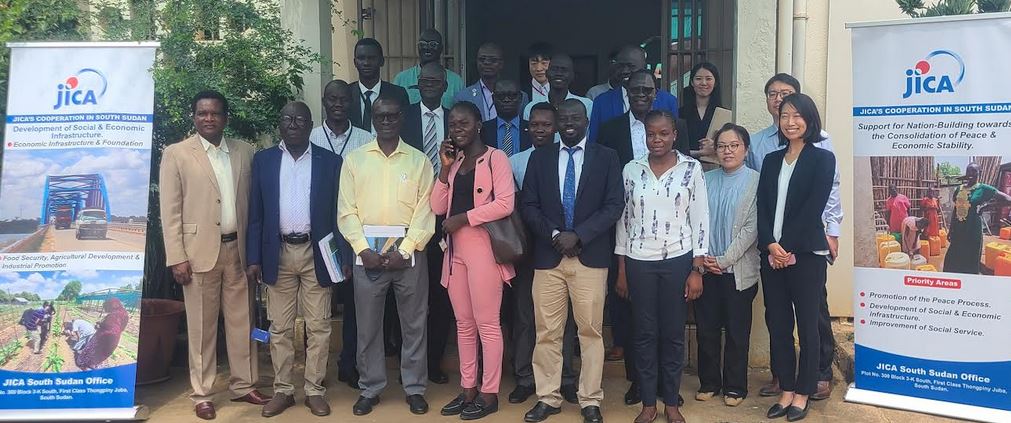The Japan International Cooperation Agency (JICA) on Thursday conducted a presentation session by JICA’S ex-participants of knowledge co-creation, a program that gives South Sudanese an opportunity to go to Japan for training.
The participants included representatives from the agriculture ministry, interior ministry, and academia, as well as staff from the National Election Commission (NEC) among others.
During the session, participants who underwent various training in Japan presented action plans to be incorporated into the policies of various institutions in the country.
Speaking at the event, Tanaka Hiroyuki, the Chief Representative of JICA in South Sudan, urged the participants to share the knowledge acquired with their colleagues.
“I encourage you to share the knowledge and experiences in your different sectors and help each other with your skills in your organizations in order to significantly enhance the positive impact of the training,” he advised. “As JICA, we believe that sharing of knowledge, skills, and experiences by ex-participants after their programs, is a crucial step in ensuring the effective implementation of action plans.”
Hiroyuki added: “This serves as a bridge between the learning environment and the application of the acquired knowledge and skills.”
According to JICA, another importance of the knowledge co-creation program is to provide an opportunity for participants to become aware of and re-examine the issues and challenges of their own countries from outside by experiencing Japan.
For his part, Ambassador William Wani Ruben, the Director of International Training, Education, Science and Technology at South Sudan’s Ministry of Foreign Affairs, said for the country to utilize the knowledge acquired during training, the beneficiaries have to work hard.
“JICA is trying to encourage us so that we can do something,” he said. “I can see all the presentations were made within ten minutes but the biggest assignment is that how do we translate them into action?”
A representative of the JICA Alumina Association who only identified himself as Patrick, said his group is implementing projects in the field of solid waste management as a result of what they learned in Japan.
“For those of you who have gone to Japan, you cannot see garbage being thrown anyhow, not even a cigarette butt, and that is what we are trying to implement in schools,” he said.




